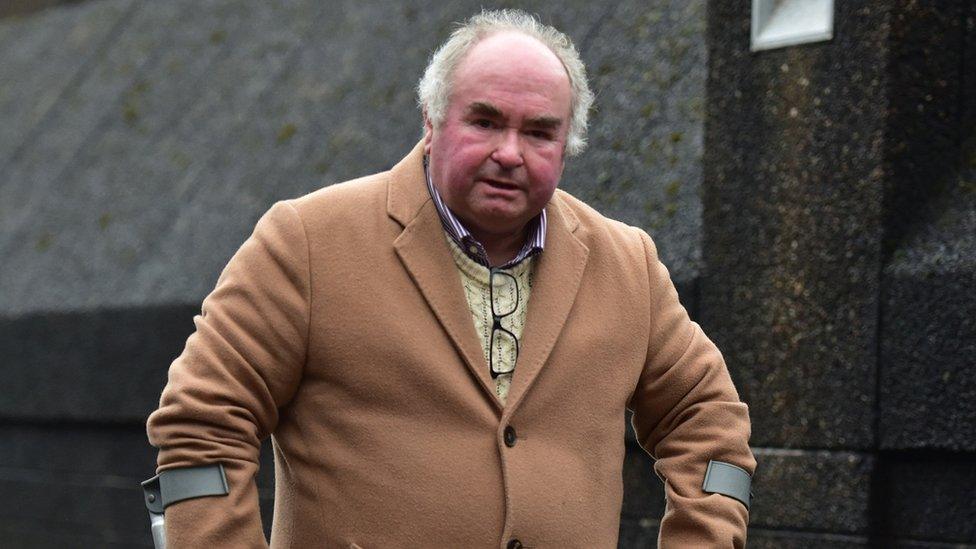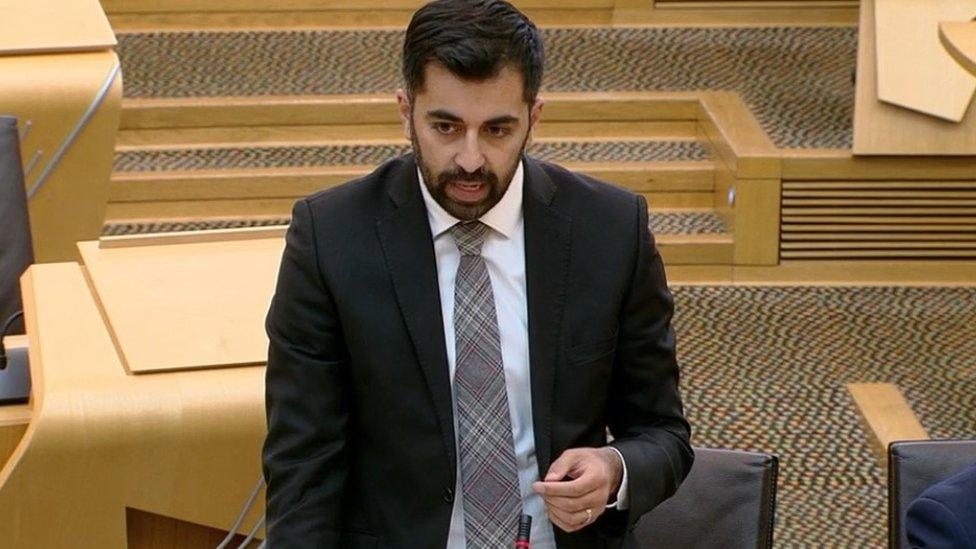Man sentenced over abusive Humza Yousaf tweet after Paris attacks
- Published

Stuart Smith, of Gretna, was sentenced to be tagged for six months
A man who posted an abusive tweet about Scotland's health secretary showed "narrow-minded religious bigotry", a sheriff has said.
Stuart Smith, 64, claimed Humza Yousaf supported "Muslim killers" and raised money for their families.
The message was sent on 14 November, 2015 - the day after the Paris terror attack, which left 130 dead.
Smith was sentenced to be tagged for six months, keeping him indoors between 19:00 and 07:00.
He was found guilty of behaving in a threatening or abusive manner aggravated by religious prejudice after a trial at Glasgow Sheriff Court last November.
'Grossly offensive message'
His sentencing has been put off on a number of occasions since the trial and Smith, from Gretna, had a warrant for his arrest granted in April.
His trial heard how he posted the tweet in response to a screenshot of Mr Yousaf's "#PrayForParis" tweet.
Smith said: "Humza Yousaf, good Scots name I am sure he is 90% backing muslim killers. Be having a whip round for terrorist families soon."

Smith posted his tweet in response to a screenshot of Mr Yousaf's "#PrayForParis" tweet
On sentencing him, Sheriff Sean Murphy QC said: "You misused Twitter to post a grossly offensive message containing derogatory remarks about Islam through your comments about a person of that faith who held - and holds - a prominent place in Scottish life.
"Your behaviour was nothing less than an exhibition of narrow-minded religious bigotry."
He said prejudice of that kind had "no place in modern Scotland" and Smith should be ashamed of himself.
"I find it impossible to understand why people like you, sitting alone somewhere with access to social media, think it is acceptable to transmit to the rest of the world hateful messages without having to look in the face the people that you are talking to or talking about," he said.
"That is a form of moral cowardice."
Smith - a self-proclaimed "hermit" - had denied tweeting the message - even criticising its grammar.
However, he was last year found guilty of committing the offence.
Related topics
- Published17 November 2020

- Published4 September 2020
